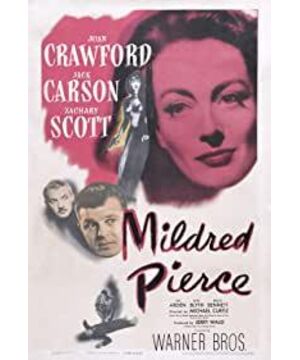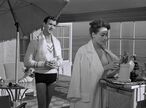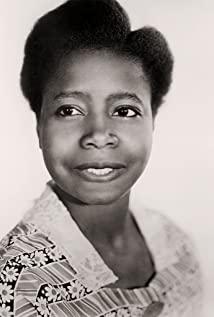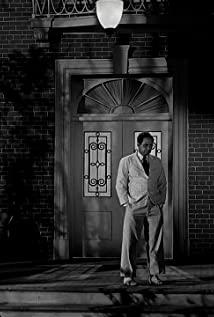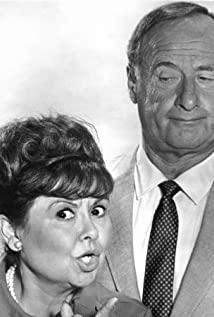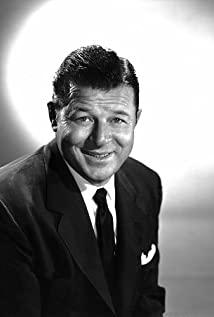"Desire of the Sea" is about a woman's bloody and tearful struggle in the consumerist society. When she finally built a corporate kingdom of her own, that is, when she flew up the branches and turned into a phoenix, she became a phoenix because of her love for it. Untouchable things and people are overwhelmed by thirst and collapse, falling down like falling stars and falling into decay. In addition, the protagonist Mildred Pearce is confused and disordered in the three aspects of geographical space, emotion and lust. He has experienced the excitement of becoming gold, and he has also encountered the unbearableness of gold. On the way to Pasadena's unique Orange Grove Road, she will experience the hurricane and rain-like confusion and loss. Under the shining halo of the California dream, she is shocked to see that the road is full of traps and traps. It seems like almighty to tell you: there is gold everywhere, and a full load is an opportunity.
In the film noir archetype, "femme fatale" is a must, along with the stupid tough guy who sacrificed for the femme fatale. However, in "Desire", Mildred is a stupid tough guy, and her daughter Veda plays Mildred in the position of femme fatale. The men in the movie, on a certain side, are also the male version of the femme fatale (or the male version of the allure of the country), the male disaster that brings disaster to the female tough guy. And Mildred seemed to have a sort of envy for men who were idle and pampered, as if it were an elegant gesture. Taking her two husbands as an example, one was unemployed and unwilling to give up five buckets of rice, and the other was unwilling to work and earn money for his high society dignity. In the end, he was reduced to being supported by Pearce's mother and daughter in turn. The inversion of gender roles is palpable: Mildred shoves her first husband Bert out of the house to support the family herself, and she pampers her daughter Veda in the same way that a wealthy entrepreneur lavishes money on his mistress. , for the mistress to buy all kinds of luxury goods to show off their wealth. Later, she married playboy Monty Bellogan to improve her social status and promised to renovate Monty's dilapidated mansion in Pasadena. The woman was working hard to support the family and earn money outside, while the man was busy arranging the love nest, like a little daughter-in-law asking Mildred for his opinion on the interior decoration, wallpaper, and furniture, as if she married him, the woman is outside and the man is inside.
In a way, the character of Mildred Pierce can be seen as a feminist pioneer, a woman who lived her life beyond her own time. But she is more like the female reversal of the hard-core male characters in Kane's novels, unable to resist her animality, and her desires are like a magnet that can't get rid of them, leaving them to slaughter and take whatever they want. This intensely masochistic/sadistic master-slave relationship has a certain degree of morbid morbidity, and nakedly presents the dark side of human nature. Perhaps, hardcore novels, or film noirs, have a certain degree of didactic meaning: people with excessive and inappropriate desires are to be accepted, and Mildred eventually lost her graceful and graceful figure, her self-esteem, and her hard work. Her career has gone up and she has endured a tragic defeat. Is it all just because her coveting her daughter violates traditional social norms? In the dark corners of human nature, there are uninhibited madness, and that unstoppable desire lies at one end. Squatting, occasionally, the madness that is ready to go rushes towards the heroine. In an instant, she has fallen into the trap of conspiracy and betrayal.
To use the superficial Freudian logic of pop culture, Pop-Freudism, Kane's novel is a pansexual libido. libido is like a gluttonous beast, bloody and bloody to get sex. , or replace it with a subversive emotional violence. The behavior of the protagonist always follows an absurd self-destruction mechanism, as if he/she has to use this method to release the flood and volatilize the gloom caused by the suppressed libido. (Meaning: Orgasm or death?) The original is the novel of the same name by James M. Cain, a novelist who is an important figure in the history of literature. His "Double Indemnity" and "The Postman Always Rings Twice" also Made into a movie by Hollywood. Compared to Billy Wilder, who directed "Double Indemnity," Michael Curtis is less obsessed with tough-guy demeanor and film noir, and more deeply involved in moral dilemmas and emotional entanglements.
Joan Crawford experienced four consecutive years of top ten box office glory from 1933 to 1936, and suddenly became a box office poison in the mouth of the theater owner in 1938. This hat is hard to get rid of. Greta Garbo, who won the lottery with Joan Crawford at the same time, chose to fade out of the screen, while Joan Crawford, who was thrown into second-tier production, couldn't bear it anymore and decided to terminate her contract with MGM in 1943. This is an important way for stars to negotiate conditions with the studio. Betty Davis was dissatisfied with Warner's always arranging unskilled home movies for her, so in 1936, Warner forced Warner to surrender "Tears in the Grotto" by canceling the contract. ", "Red Shirt Tears" and other masterpieces. However, MGM, which has more stars than heaven, did not hold back Joan Crawford. Joan Crawford, who had regained her freedom, began to look for roles on her own, and Warner Bros. decided to start a film adaptation of the best-selling novel "The Love of the Sea". They also took a fancy to Joan Crawford and decided to let her play. Directed by renowned director Michael Curtis. But Michael Curtis was very reluctant to work with Joan Crawford. He shouted in the office: "Let me direct the woman with eccentric temperament. The style of the world and the damn shoulder pads go away!" Later, Joan Crawford put down the air, took the initiative to find Michael Curtis and said to him, "Let's try it?" Michael Curtis reluctantly agreed. In order to win the role, Crawford lowered his profile to Michael Curtis and suggested that he audition first, but the results were good enough for both parties to be convinced of each other. The film finally allowed Crawford to attack the heart of all Hollywood stars - the Oscars. Greta Garbo and Norma Sheila retired one after another, and time cleared out strong competitors for her. That year, she won the golden statuette, and Hollywood revived interest in her, allowing her to continue enjoying the camera and applause. The adopted daughter Chris Tina wrote in Joan Crawford's biography "Dear Mummy" that you can hate her relentlessly and love her unreservedly, but you can never ignore her.
Joan Crawford's performance has a very strange feel to it. I have always believed that very few actors can perform several different feelings, no matter how great an actor is, no matter what he plays, with a frown, a raised hand, and a turn around, he always has his own temperament. There is a tragedy of "one thousand people". The reason why Crawford is surprising is that the weakness, helplessness, sincerity, and fragility in her role after the age of forty, and her arrogance, strength, beauty, and aggressiveness in her twenties and thirties are all real. It makes people feel that she has always been like this character and temperament all her life. Except for the same face, it seems like two people. Apart from that, there is not much to say about the heaviness of the film and its attack on the parasitic life of the declining aristocracy. Luckily for Joan Crawford in 1945, Crawford's acting career had fallen to a low point, and her role in "Sexy" was her last chance, and if she failed again, she would be forever Exit the entertainment industry. This time, Crawford's dedication impressed director Michael Curtis and everyone on the crew. The producers of "Sexy" suggested having gossip columnist Heda Hopper write an essay pointing out that Joan's acting was good enough for an Oscar. The proposal was implemented, and the 1945 Oscar for Best Actress was awarded to Joan Crawford. It was the first well-designed Academy Awards campaign, and Joan Crawford won an Oscar for it, and the success of this star-making case marked the Oscars forever changed. Use the actor's popularity and acting skills to win the bargaining commodity value, and select the stars who satisfy the seller's market from all living beings to participate in the system of survival of the fittest. It doesn't matter whether the idol himself exists or not, what matters is how strong the image's vitality is. The so-called packaging is the essence of the commercial society.
In the 1940s, a role like Mildred Pierce in "The Sea of Love" was hard to play. You can feel Joan Crawford sacrificing herself, desperate, a mother for her daughter. In fact, after Mildred's marriage broke down, she put all her love into her daughter, she worked hard to make money, arranged dates with people she didn't love (for financial gain), opened a restaurant chain, and even took the blame for murdering her daughter . Her only wish is to win her daughter's love, but it's a pity that her daughter is a selfish person. Joan Crawford has captured this sympathetic mother with precision. She shows the two sides of her characters: she is cold-blooded and strong and firm to outsiders; she is gentle and strict with her daughter, caring and teaching. Joan Crawford's performances are always forceful: she reprimands others in a daring tone (only Bette Davis can match her among actresses); she doesn't express pain. She was crying, but tears of sadness and despair flowed out, which was the embodiment of her strong and weak conflict.
The most difficult part is the scene where the phone calls at the end. Joan Crawford's inner contradictions are at an extreme, she struggles between calling the police and not reporting - there are tears in her determined look, and tremors in her low tone; she is nervous, sad, caring and desperate. She hesitated, as if she was about to collapse immediately... Her heart was torn in half by her daughter, and Mildred Pierce also got everyone's sympathy. Joan Crawford is no ordinary actress, she's a movie star to be exact. The difference is important: she rarely appears in top movies, and her films are rarely called "excellent" regardless of their source, but she is the most successful and longest-running actress in film history. She was born with charisma, a person of the highest order, and she was born with a star quality. Everything about her, including her fortune from nothing to a fortune, all her unremitting efforts to be in the flash, make her the best material for Hollywood's dream factory. Her daughter's whistleblower about her autobiographical nature cheekily reveals Joan's rotten private life, making her truly "earn the name". Joan Crawford is beautiful (face, features, stature, and world-famous shoulders), and she's even more beautiful in this film noir. However, her beauty did not overshadow her acting skills, and the statue was indeed worthy of its name, although she did not show up at the award-winning scene because she was afraid of failure.
View more about Mildred Pierce reviews


